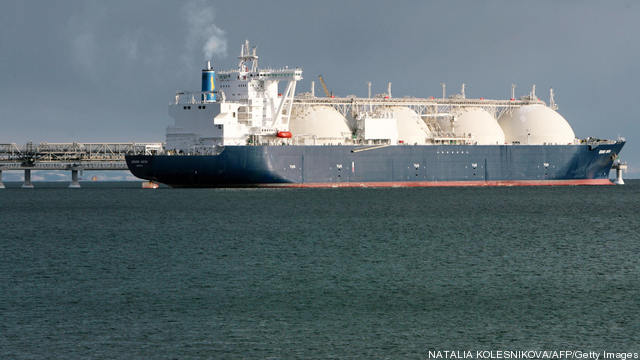The Brookings Institute in Washington DC has come out in favor of lifting the U.S. ban on crude oil exports. Brookings hosted an event on Sept. 9 to unveil their new report titled “Changing Markets: Economic Opportunities from Lifting the U.S. Ban on Crude Oil Exports” written by Charles Ebinger and Heather Greenley and based… Keep reading →
Brookings Institution
Sign up and get Breaking Energy news in your inbox.
We will never sell or share your information without your consent. See our privacy policy.Proponents of a “commercial maturity test” for LNG export projects suggest that it could help to bridge the gap between those who support and those who oppose allowing the market to determine how much natural gas the US will sell abroad. But changing the rules mid-stream could give some project developers an edge, and even… Keep reading →

Taxing carbon could reduce US consumption of fossil fuels and significantly cut the yawning U.S. budget deficit but would affect low-income people the hardest unless offsets are built into it, economists and tax experts said on Tuesday.
As Congress and the White House seek alternatives to the “fiscal cliff” of sharp tax hikes and spending cuts set to kick in on January first next year, experts on fiscal and environmental policy gathered at the American Enterprise Institute for a day-long discussion on a possible major new source of revenue that would also cut carbon emissions. Keep reading →

Memo to: Jim Lehrer, PBS; Candy Crowley, CNN; Bob Schieffer, CBS
In re: Energy questions you should be asking when you moderate the upcoming October Presidential debates Keep reading →

With global talks on climate change just inching along, governments can move forward on some climate goals through trade agreements to cut tariffs and facilitate commerce in “green” goods like wind turbines and solar panels, experts told a Brookings Institution session this week.
For years, the US and European Union have avoided negotiating bilateral trade deals because they might undercut the Doha Round, the tariff reduction talks the World Trade Organization begun in 2001. Keep reading →

Widening of the Panama Canal, due to be completed in 2014, will allow most LNG tankers to transit the isthmus and make natural gas from Gulf of Mexico ports “instantly economic” to transport to high-price Asian markets.
That’s key for multiple proposals to build plants to liquefy and ship surplus US natural gas, according to experts at a Brookings Institution seminar Jan. 24. Most proposals are for existing but unused LNG import terminals on the Texas and Louisiana coasts. Giant LNG tankers, like the largest modern freighters, are too big for the existing Panama locks. Keep reading →

Chinese companies continue to “overpay wildly” for foreign energy investments but still can’t keep pace with growing consumption in China’s subsidized domestic market, Derek Scissors of the Heritage Foundation told the China Environment Forum in Washington last week.
Fuel prices are controlled and kept well below market in China, he said, so Chinese companies end up selling oil and gas into international markets whenever possible rather than sending the resources home. The government is promising reform but has set no schedule. Keep reading →


